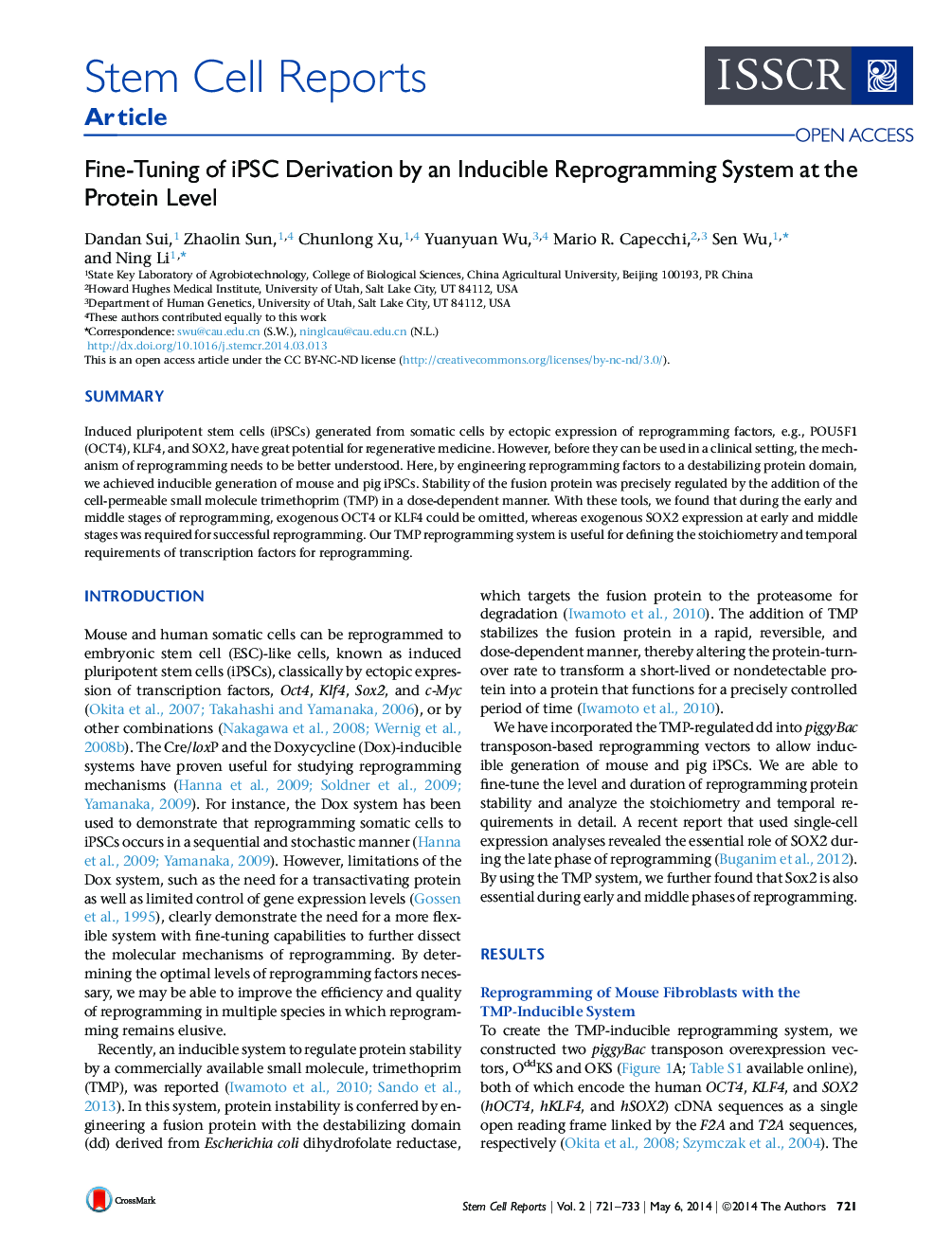| Article ID | Journal | Published Year | Pages | File Type |
|---|---|---|---|---|
| 2093367 | Stem Cell Reports | 2014 | 13 Pages |
•TMP reprogramming system can be used for inducible generation of iPSCs•Stability of reprogramming factors is precisely regulated by TMP•During early/middle stages of reprogramming, exogenous OCT4 or KLF4 can be omitted•During early/middle stages of reprogramming, exogenous SOX2 expression is required
SummaryInduced pluripotent stem cells (iPSCs) generated from somatic cells by ectopic expression of reprogramming factors, e.g., POU5F1 (OCT4), KLF4, and SOX2, have great potential for regenerative medicine. However, before they can be used in a clinical setting, the mechanism of reprogramming needs to be better understood. Here, by engineering reprogramming factors to a destabilizing protein domain, we achieved inducible generation of mouse and pig iPSCs. Stability of the fusion protein was precisely regulated by the addition of the cell-permeable small molecule trimethoprim (TMP) in a dose-dependent manner. With these tools, we found that during the early and middle stages of reprogramming, exogenous OCT4 or KLF4 could be omitted, whereas exogenous SOX2 expression at early and middle stages was required for successful reprogramming. Our TMP reprogramming system is useful for defining the stoichiometry and temporal requirements of transcription factors for reprogramming.
Graphical AbstractFigure optionsDownload full-size imageDownload as PowerPoint slide
